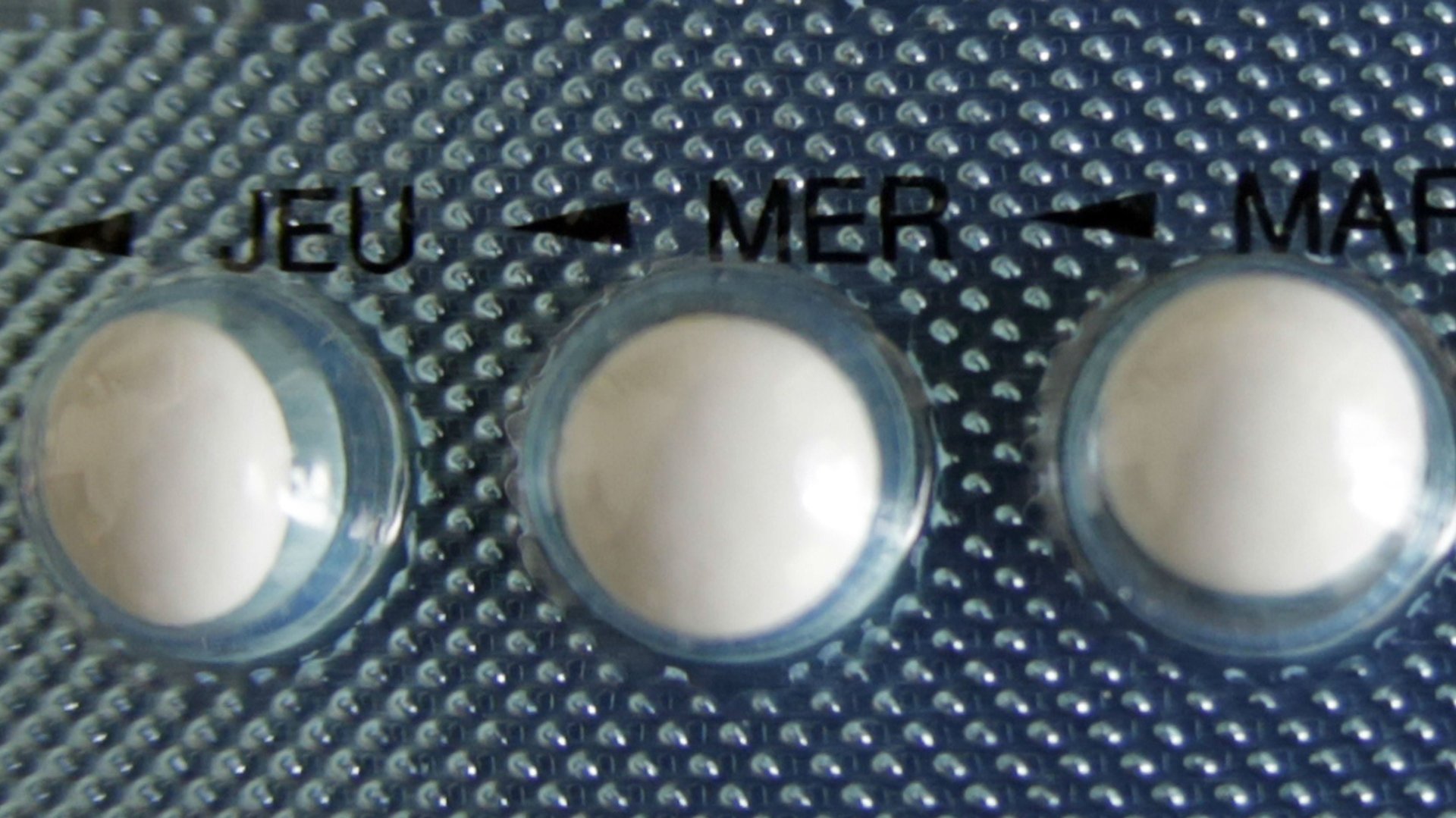A small trial for a male birth control pill was successful—if you’re okay with serious sexual side effects
Arguably, a male birth control pill has been the white whale of family planning research. Although there have been several hopeful leads, obstacles like funding or adverse side effects have halted significant progress.


Arguably, a male birth control pill has been the white whale of family planning research. Although there have been several hopeful leads, obstacles like funding or adverse side effects have halted significant progress.
These failures haven’t deterred scientists. Earlier this week at the annual meeting of the Endocrine Society, researchers from the University of Washington presented the first promising results of a small clinical trial on men using a hormonal pill for a month. The study has yet to be published in a peer-reviewed journal.
The researchers recruited men between the ages of 18 and 50 to take small doses of a compound called dimethandrolone undecanoate, or DMAU, which lowers the amount of testosterone and other hormones involved in sperm production. The 100 men initially involved in the study were put in one of four groups, each given either a placebo, 100mg, 200mg, or 400mg of DMAU daily for 28 days. Blood tests from the 83 men who completed the study showed that those taking the highest DMAU dosage had hormone changes that, theoretically, meant they could theoretically no longer impregnate a woman. Because the men’s sperm count wasn’t monitored, though, it’s impossible to say if this is actually true.
Previous attempts to develop a hormonal birth control for men were stymied by liver-related side effects; DMAU didn’t seem to have this problem. But some researchers not involved in the study have expressed concern that DMAU may be detrimental to men’s health in other ways. “Normal testosterone in a man is anywhere from 350 to 1,100 nanograms per deciliter,” Seth Cohen, a urologist at NYU Langone Medical Center not involved in the study, told CNN. “And they got these guys down to 13 nanograms per deciliter.” That’s far beyond the 50-nanograms-per-deciliter threshold that scientists refer to as chemical castration, which can result in side effects ranging from weight gain, breast enlargement, blood clots, depression, and decreased bone density. Currently, chemical castration is used as a treatment for prostate cancer and for those individuals who have potentially dangerous paraphilias, in which case the benefits outweigh the risk of the side effects.
Stephanie Page, the endocrinologist at the University of Washington leading the study, told CNN that despite the major drop in testosterone, few of the men in the study reported any of the side effects usually associated with testosterone deficiencies. This, she said, is because the DMUA pill used in the study contains other hormones that mimic other effects of testosterone.
However, “few” may be a hopeful interpretation of the actual study results. Nine of the men, or roughly 11% of total participants, did report lower libido—which would make it a “very common” side effect by most pharmaceutical standards. That said, some women taking hormonal birth control report similar libido effects (although scientists haven’t been able to prove unequivocally that the hormones cause the reported drop in sexual desire).
Additionally, all the men who took DMUA in this recent study gained weight, some as much as nine pounds, and had a small decrease in the amount of healthy cholesterol in their blood.
Another caveat with this study is that the participants only took the drug for a month. Presumably in a real-life setting they’d be taking DMUA for years—the length of time women typically take hormonal birth control—and the longer-term effects of the hormone-disrupting chemical are still highly unpredictable. Researchers have only recently put together the connections between hormonal contraception for women and increased risk for both depression and breast cancer.
Page says that the next step is to undertake a larger and longer—three-month—study of DMAU.